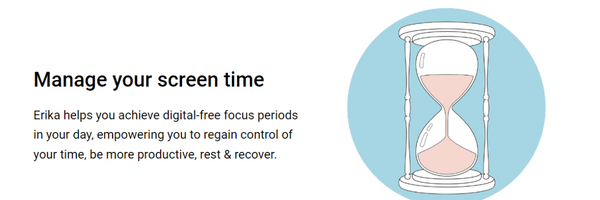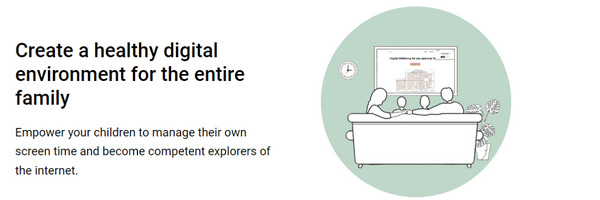Cybersecurity Expert: Nicholas Powell
Cybersecurity expert, Nick is Founder of Erika – an online safety technology that safeguards the digital wellbeing of employees and their families by protecting them from people who mean them harm online (protection from online fraud and child grooming) and by providing user support to internet addiction. Erika is made available as an employee benefit through HR departments as part of an employee digital wellbeing programme.
1. What was your background to setting up Erika?
My personal background is in Risk Management. After graduating from University, I served in the British Army for 7 years before setting up an Information Security consultancy, which I ran for five years serving UK and US businesses. Always wanting to get into the tech sector, I used my time consulting to develop thoughts to online safety & security problems that could be solved with technology. When my consulting conversations were put on pause during COVID, it gave me the push to build the engineering team and start our journey with Erika. There was no better use of time during lockdown to grab a blank sheet of paper and to start innovating.
2. Where did you get the idea for your business and what sets you apart from your competitors within the cybersecurity market?
Our Personal Online Safety & Security is integral to the security of the businesses we work for, our own digital wellbeing and the wellbeing of our family – and yet is an area that I saw as under-served by technology – particularly in combatting the rising threat of online fraud, scams and child grooming done through social engineering; and so it is this problem that we serve. I also recognised that businesses have an interest and role to play in helping their employees and their families stay safe online, to maintain wellbeing, productivity and happiness in the workplace and so Erika is uniquely made available as an employee benefit through HR departments as part of employee wellness programmes.

3. Did you experience any challenges at the beginning of your journey? If so, how did you overcome them?
The start-up journey has daily challenges. Finding a gap, building a product to serve that gap and going to market is by its very nature, hard. One early unforeseen challenge that we faced in product development was a cultural one – we knew that the key to building something that people wanted was to build an MVP, stay lean and speak with the end user to get feedback and iterate. Our first focus was to protect users from online fraud. We hypothesised that our most loyal users would be those who have already fallen victim to fraud – all we needed to do was to find them and talk to them. We quickly learned however that people who were victims of online fraud don’t like talking about it – they are embarrassed and don’t step forward to speak about their experiences. This gave us challenge from an early product perspective and we had to resolve it by using fraud statistics and expertise to build from – who was being scammed the most and how. We’ve since expanded the product offering to support employees with family and child online safety, where users (parents) are much more willing to have a conversation about their thoughts and needs in the topic, giving us a stronger basis for iteration.
It’s also true what they say about the team being the most important part of a start-up and why you read that investors look at team first and foremost and product/market thereafter – they know that your first product idea or hypothesis is likely to be challenged, but with a first-class team you can overcome the unexpected.
4. Do you currently have any other additional business opportunities or ideas that you are passionate about?
We want to be the leaders in online safety & security for employees and their families and we have a product roadmap and strategy to achieve that. This will be our mission for the years ahead.
5. What do you enjoy most about working for yourself?
By its very definition entrepreneurship is all about creating something new, creating your own rules and changing the norm. It’s hard but it gives you fulfilment and satisfaction that cannot be matched.
6. How would your colleagues describe your management style?
Ha, mmmm – well from my Army days I would like to say I lead from the front. In the office the team would likely say I have a fair approach – fairly relaxed but that I micro-manage probably a bit too much! It’s a very hard balance when you are in the early stages of start-up to be the custodian of investors’ money but at the same time wanting to give the team free reign over their department. If you go off course, it’s me who is accountable as CEO but at the same time you want the team to have freedom of action and thought. It’s a tough balance I have yet to master.
7. What strategies did you initially employ to promote your cybersecurity business?
At its core Erika is a consumer product, and so a direct-to-consumer marketing strategy is perhaps an obvious route to market – but D2C it’s expensive and attritional. We instead recognised that businesses were being impacted by the personal online safety & security of their employees and making Erika available as an employee benefit as part of HR wellness programmes, was the quickest and most valuable route to market. Digital wellbeing will increasingly become a critical aspect of employee Personal wellbeing and it’s this growth area that we serve.

8. Do you think there will be many changes within your current sector in the next 10 years, and how do you envision the future for Erika?
In addition to safeguarding the Digital Wellbeing of employees for their personal health and productivity, the personal digital assets of employees and their families are now and will become ever more, a critical component of enterprise security. Here, hackers will increasingly seek to profile and target employees on their personal accounts and online channels, to subvert and penetrate the businesses they work for and is a risk amplified by the work from home environment, that has readily crossed and muddied our personal online workflows with our business workflows. The future of enterprise defence will therefore require Info Sec teams to extend resources towards tools like Erika, that serve the business ‘beyond the gate’ that protect the individual and their families.
9. If you could offer a first-time entrepreneur only one piece of advice, what would it be?
Not to be afraid of failing. You can only learn by failing – so fail fast, learn and iterate. I am very critical of the ‘British way’ that does not readily allow others to try new things for fear of failure or judgement. Testing hypotheses and finding product market fit can ONLY be achieved by failing fast. So, embrace failure, learn, iterate and succeed.
Rapid Fire
- Name a person that inspires you. – Phil Knight. A cliché perhaps but read Shoe Dog and you’ll join the club.
- What’s the best meal you have ever eaten in a restaurant? – An Army ration pack on Sennybridge training area in Wales. Al fresco dining at its best after a hard day at the office.
- Are you more of a morning person or a night owl? – Definitely a morning person. I have two boys under the age of two – I am a morning person.
- What is one thing about you most people don’t know? – That I’m one day going to get my CTO to teach me how to code (don’t tell him – it could break him).
- What is your best childhood memory? – The Indiana Jones ride at Disney World, Florida, aged 9.

